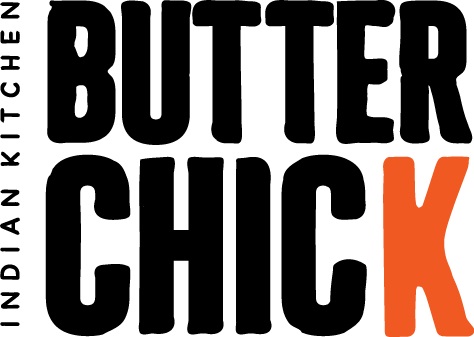Being veggie-forward has allowed these foodservice brands to welcome a new audience while appealing to the tastebuds of their customer base
By Daniel McIntosh
While vegetarianism has long been a standard around the world, in North America it’s recently gone from a niche diet to an increasingly attractive approach to personal and planetary health. In 2022, the portion of vegetarians in Canada had grown to 7.6 per cent, which is a staggering 2.89 million people. And the benefits of this lifestyle are as abundant as the types of foods available to those who follow it: research has found that vegetarian diets are associated with increased environmental stability, including a reduction in greenhouse gas emissions, as well as a lower risk of heart disease and some cancers.
But though the number of Canadians who eat exclusively plant-based is growing, many people are embracing part-time attitudes toward vegetarianism. A 2023 survey by Innova revealed that 15 per cent of consumers in the U.S. and Canada were flexitarian, meaning semi-vegetarian or meat-reducing. This allows them to have the best of both foodie worlds, leveraging the health benefits of vegetarianism while still allowing the occasional meat-based meal.
Even more to the point, diners are looking for authenticity, rather than plant-based dupes of their meat-heavy favourites. For flexitarian eaters, franchises that provide unique meatless meals, alongside options suitable for all demographics, are where they want to spend their hard-earned cash.
From light but satisfying wraps and bean burgers to fragrant chaat dishes and hearty soups, these vegetarian-friendly systems are ready to help franchisees serve forward-thinking diners for generations to come.
ButterChick
ButterChick is bringing a new style to the QSR market. For franchisees, it’s very simple to operate, and the flavourful, Indian-inspired dishes appeal to the everyday Canadian consumer. Kiran Kataria, the brand’s CEO, says “Many traditional Indian dishes are vegetarian, and ButterChick has all of those and more! Indian food traditionally serves a large variety of vegetarian, dishes, making use of chickpeas, paneer, lentils, and other plant-based products for protein.”
Kataria points to the veggie samosa slider as an example: “It’s a veggie fusion delight!”
Kataria also notes that changing the perception of Indian food is also a bid to improve its market potential—not an easy feat considering the complexity and range of spices of the recipes they draw from (“This is, in large part, why we have not seen Indian restaurants franchised on a large basis,” she adds.) To simplify the complexity, ButterChick brings a simple operating model that ensures consistent, high-quality Indian dishes to its restaurants’ offers of fusion foods like rice bowls, wraps, and poutine.
ButterChick is the brainchild of the Kataria family, who previously founded Canada’s largest Indian sauce manufacturer. The benefits for franchisees partnering with ButterChick are significant, according to Alex Schulz, vice president of franchise operations. “We have complete control over food production, from raw ingredient input through to plating.” The overall system provides franchisees with key advantages that drive profitability. Chief among them are reduced labour costs (resulting from lower prep time, and their “no-chef” operating model).
For incoming franchisees, ButterChick looks for people with a passion for food and providing consistent quality to guests. Moreover, as is expected from burgeoning brands, a willingness to follow the franchisor’s system is also necessary. Franchisees also receive two weeks of training before opening their location, plus an additional week of on-site training. “You just need to bring a desire to make people delighted with great taste served fast,” says Schulz.
For a standout brand with standout flavours, attracting customers comes down to a desire for serving great food, a commitment to the process, and going above and beyond to provide exceptional levels of customer service.
“We see Canadians from coast to coast enjoying the taste, consistent quality, and great value of Indian food,” adds Kataria. “It’s the flavour and the fun that bring them back time and time again.”
Copper Branch
After 30 years as a high-powered executive in the tech industry, Trish Paterson was worn down. Years of client meetings, business travel, and vending machine dinners left her burnt out. For her, retirement meant enjoying family life and getting back to health and wellness.
On a chance encounter during a franchise tradeshow in 2016, she and her husband, Sean, were drawn toward a Copper Branch booth, overwhelmed by the repetitious pizza and burger offerings that dotted the show floor.
“It was such a unique and different concept that it really intrigued me, and I couldn’t stop thinking about it,” says Paterson.
Although she was interested, her husband wasn’t sure how a 100-per-cent plant-based restaurant would play out, especially in their small town of Brooklin, Ontario, just north of Whitby. Still, they took an invite from Copper Branch’s founder, Rio Infantino, to see the company’s flagship location in Montreal.
“So I did, I went out and I saw it, and I just thought, this is something I really think our community needs,” says Paterson.
At the time, Paterson was not a strictly plant-based eater, but the franchise’s menu of bowls and salads fuelled by international flavours spoke to the environmentalist in her. Now, as the CEO of the company, she’s driving that change on a national scale.
“What we really focus on is great food and great ingredients, but we pay particular attention to unique ways of serving,” says Paterson. “We pay very close attention to dietary restrictions and allergens.”
Paterson says she sees an influx of people with rare allergies as well as parents of kids with allergies in Copper Branch, so all associates are taught to speak about allergens and the dietary restrictions of the different dishes. Incoming franchisees should be prepared to undergo the same education.
Paterson notes that Copper Branch “generally attracts people that may or may not have ever thought about entrepreneurship before. They’re more interested in diving into the brand and what its purpose stands for.”
“It’s really important for us that they understand how niche the brand is; it’s not a typical quick service restaurant brand,” she says, noting that owners need to have more than just a passion for healthy food. “Many of the franchisees that come to us do have an interest in plant-based, they do have an interest in health and wellness.”
But it takes more than an interest in nourishment to create a healthy franchise.
“Are you truly an entrepreneur? And do you understand the work that goes behind running your own business?” she asks.
Franchisees with the right small business experience and the desire to be owner-operators complete a discovery day in an existing Copper Branch location. After making their final decision (Paterson says people with HR and accounting backgrounds often do well), a training team works with the franchisee on-site for two weeks. The brand’s online training platform houses additional modules and a database of all the recipes on the menu.
As for advice for incoming franchisees, Paterson says speaking with other franchisees and understanding the support head office provides is key.
“Sometimes people think they want to own their own business because they want to get out of the rat race of corporate life, and they feel that they want to be their own boss,” says Paterson. “I’ve heard it all, and they underestimate the amount of work that goes [into] that, and the administration that you have to do, and the accountability that you have.” Ultimately, making sure you’re in it for the right reasons is essential.
WrapZone
While healthy fast food has become something of a trend recently, WrapZone has been a stalwart of B.C.’s Okanagan region since 1997.
According to franchisor Akashdeep Singh, a wrap might not seem as exciting as a burrito or shawarma, but he sees that as a positive rather than an obstacle to be overcome. “We do wraps, which [feature] flavours from all over the world,” says Singh. “So, it’s not just focused on rice or based on beans.”
While WrapZone’s offering isn’t exclusively vegetarian, the bulk of their menu is guided by meat-free flavours and other alternative diet options, from snack wraps stuffed with tofu to rice bowls and salads topped with flavourful sauces and seasonings. Even their smoothie list has a selection of dairy-free options.
One location in Kelowna, B.C., near the coast of Okanagan Lake regularly gets return tourists from other provinces asking when they can get WrapZone closer to home. And they won’t have to wait very long, as the topic of expanding into Alberta and beyond has popped up internally, with potential landing zones in Calgary and Edmonton, as well as further prospective sites in Toronto.
Singh took over operations from the previous franchisor last year, who, due to health issues, couldn’t keep up with the momentum of the popular and growing brand, despite its success.
“Though it had its own unique food, with the digital world today it didn’t live up to the digital marketing [needs],” says Singh. “We made a lot of changes at the backend and restructured the POS terminals.”
The duo also invested in influencer marketing and sponsorships to get the revamped WrapZone in touch with the communities they serve. “We try to sponsor different events, local basketball and athletics clubs. Recently we had a campaign with Mamas for Mamas, [a charity that supports caregivers in crisis], so we have tried to be more involved with the channels available,” recalls Singh. WrapZone also provides hot lunches and catering for schools and offices. In addition, WrapZone’s internal team uses location data to find out where certain menu items are most popular and applies their findings to other stores.
As Singh looks to enforce WrapZone’s digital presence, they are also seeking franchisees to be hands-on in spreading the good word. “The food part can be covered with training, but the customer service skills, that has to be in you,” says Singh. Having previous customer service skills is crucial for prospective WrapZone franchisees. Whoever the owner-operator is, they have to have that inclination toward the clientele, he adds.
Prospective franchisees looking to get wrapped up with a modernized health-focused brand that has an established customer base get a month of on-site training in food preparation and staff and inventory management.




